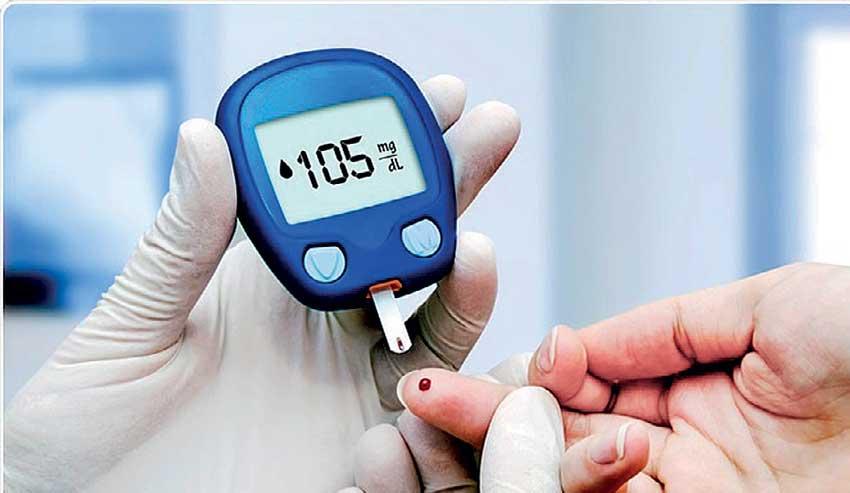12 Nov 2021 - {{hitsCtrl.values.hits}}

An average office- goer who usually has a light breakfast and a quick lunch now consumes three heavy meals and snacks in between
 World Diabetes Day falls on November 14. Every year, World Diabetes Day (WDD) campaign focuses on a dedicated theme that runs for one or more years. The theme for World Diabetes Day 2021-23 is Access to Diabetes Care – If Not Now, When? As the pandemic has brought the shortcomings of the health systems worldwide to light, better plans in terms of access to proper diabetes care is the need of the hour.
World Diabetes Day falls on November 14. Every year, World Diabetes Day (WDD) campaign focuses on a dedicated theme that runs for one or more years. The theme for World Diabetes Day 2021-23 is Access to Diabetes Care – If Not Now, When? As the pandemic has brought the shortcomings of the health systems worldwide to light, better plans in terms of access to proper diabetes care is the need of the hour.
One in eleven adults were living with diabetes as of 2019. Three out of four people with diabetes live in low and middle-income countries, such as Sri Lanka. Covid-19 has further magnified the preexisting morbidity and mortality risk among diabetics. Steroids which are used in the treatment of severe covid infection too, are known to impede glycemic control in both diabetic and non-diabetic patients. Thus, the Covid-19 pandemic has been a challenging time for diabetics.
A year-long pandemic and the looming threat of Covid exposure had rendered patients reluctant to approach hospitals. The lockdown, travel restrictions, the need to undergo PCRs and RATs have further complicated the process of patients seeking healthcare.
 While mobile medical and pharmaceutical services and home visits are readily available in cities like Colombo, the same cannot be said about the other parts of the island where travel, access to sophisticated medical facilities and technology are still underway. Although the Government hospitals had posted the prescribed medicines to regular clinic patients, annual/biannual one-to one consultation with physicians was interrupted by the pandemic, and most diabetics stayed home repeating their old prescriptions.
While mobile medical and pharmaceutical services and home visits are readily available in cities like Colombo, the same cannot be said about the other parts of the island where travel, access to sophisticated medical facilities and technology are still underway. Although the Government hospitals had posted the prescribed medicines to regular clinic patients, annual/biannual one-to one consultation with physicians was interrupted by the pandemic, and most diabetics stayed home repeating their old prescriptions.
Upon reopening the country, diabetic clinics were brimming with patients whose blood sugars had skyrocketed. Most people during the pandemic were unable to control their food habits. As patients were confined to their homes, physical activity and exercise too were non-existent. Cumulative results of these factors led to poor sugar control. The difficulties faced by diabetes patients during the lockdown emphasizes the need to plan and implement better access to diabetes care, and WDD campaign is set to focus on this. At the dawn of the pandemic, being under a lockdown was viewed as an opportunity for people to revert to a healthier lifestyle. New diet and fitness regimens were being followed, and with the advent of the work from home culture, people were able to have better hours of sleep, healthier home-cooked meals, more quality time with their families.
Unfortunately, this is no longer the case. “Work from home” has now become a work 24/7 deal, where people are confined to their chairs. Students too have all their activities online. Owing to the economic crisis brought about by the pandemic and many other factors, the average middle-class urban family is no longer able to afford a healthy meal rich in fruits, vegetables and pulses. As we (hopefully) approach the end of the pandemic, life has become more toxic than ever.
The financially comfortable population too, are facing challenges maintaining a healthy lifestyle. When all the family members are home, homemakers are compelled to make large meals, snacks and tea around the clock for everyone. An average office-goer who usually has a light breakfast and a quick lunch now consumes three heavy meals and snacks in between. Overeating due to boredom has also become an issue. Diabetics who were so far in control of their food habits are now struggling to set a routine.
Regardless of the economic status, this drastic drop-in physical activity and the overall sedentary lifestyle in young adults contribute to their risk of acquiring type 2 diabetes and dyslipidemia (high cholesterol). While factors such as genetic make-up cannot be changed, making conscious lifestyle changes and maintaining good health goes a long way in reducing diabetes-related morbidity.
28 Apr 2024 3 hours ago
28 Apr 2024 6 hours ago
28 Apr 2024 6 hours ago
28 Apr 2024 6 hours ago
28 Apr 2024 9 hours ago